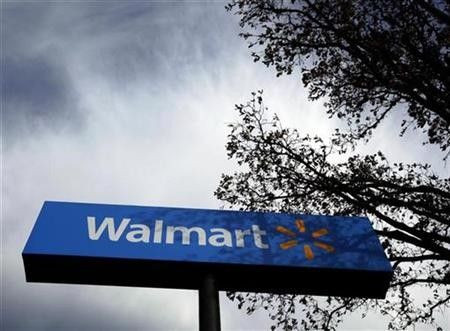Wal-Mart faces stiff opposition to setting up shop in New York City

Wal-Mart’s (NYSE: WMT) efforts to establish its first footprint in the vast New York City market promises to be long and bumpy ride, as forces opposed to the discount retailing giant’s presence gather their resolve. Meanwhile, the company seems equally determined to build a store in the city.
The New York City Council has scheduled a meeting on February 3 to review Wal-Mart’s application to open a store. However, Wal-Mart officials have notified Council Speaker Christine Quinn that they will not attend.
The corporation has commenced a multi-million dollar public relations campaign, including massive direct mail campaign targeting potential customers in Brooklyn, Bronx and Queens, which touts the benevolent impact Wal-Mart can have on the surrounding community. The company has even launched a community forum website WalmartNYC.com, as well as TV/radio commercials aimed at detailing the benefits of the store to New Yorkers.
“We know that job creation and access to affordable food are significant needs in the city and we think our stores can be part of the solution,” said Steven Restivo, director of community affairs for Wal-Mart.
“New Yorkers overwhelmingly support Wal-Mart, so we’re using social media to listen to the conversation, tell our story and give our supporters a voice.”
Previous attempts by Wal-Mart to establish stores in Brooklyn, Queens and Staten Island have resoundingly failed.
However, opposition to the retailer from certain local politicians has been fierce. City Council member Charles Barron said he wants to keep New York City a Wal-Mart-Free Zone.”
The City’s Public Housing Advocate Bill de Blasio goes even further – he claims that Wal-Marts kills the local economy, destroys jobs, bypasses union rules, reduces wages, eats up tax dollars, prices out local mom-and-pop stores, and further cuts the size of the middle class.
Wal-Mart's record of driving small businesses out of town and paying below-poverty line wages to its employees will only exacerbate the current decline of New York City's middle class, de Blasio said.
We must do everything we can to spur job creation in New York City, but that does not include opening our doors to a proven job killer.
Wal-Mart is reportedly seeking to open a store in East New York in Brooklyn, one of the poorest neighborhoods in the city. Wal-Mart critics complain the company is using a cynical gesture by promising (low-paid) jobs to the blighted area.
DeBlasio cited a study which claims that for every two jobs Wal-Mart creates; it kills three other jobs, while overall retail sales in a region stays largely unchanged. The study indicates that after Wal-Mart enters a neighborhood, the existing supermarkets and discount stores lose between 10 to 40 percent of their business.
The report further claims that Wal-Mart is a tax cheat and would burden city taxpayers due to the company’s increased subsidized healthcare needs.
Studies from all across the country show that Wal-Mart's arrival does not bring the increase in jobs and retail spending that the company promises, said Brian Paul, Center Fellow and Masters of Urban Planning Candidate at Hunter College, which conducted the study. Instead, Wal-Mart captures spending from existing stores, driving them out of business and replacing existing retail jobs with lower-paying Wal-Mart jobs.
Paul added that he believes Wal-Mart is planning a massive expansion into urban areas.
Allowing one Wal-Mart to enter New York may open the floodgates and devastate small businesses in neighborhood retail districts throughout the city.
However, New York City Mayor Bloomberg apparently supports Wal-Mart’s plans to enter the city. Through a spokesman, the Mayor said
“This city does not have the legal right to prevent any business that can come here that complies with our laws. And if Wal-Mart wants to go into a place… they have a right to do that. I’ve always thought that the more competition the better. People that live in this city are going outside the city to shop at Wal- Marts. So if they’re going to shop at Wal-Marts… they might as well have the jobs here and the tax revenues here. But the city does not have the right to say to one business, ’You can’t come here.’ And we’re not going to do that.”
© Copyright IBTimes 2025. All rights reserved.





















